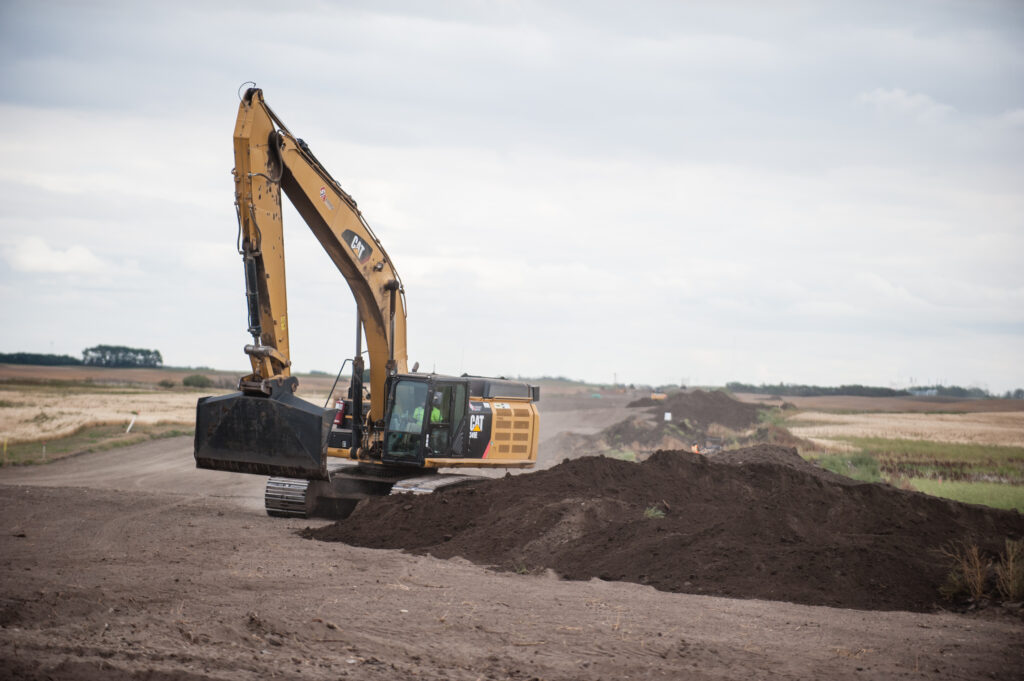
The “No More Pipelines” act is no more. The Alberta Court of Appeal threw it out on May 10. Photo by Brian Zinchuk

The Alberta government, calling it a Trojan Horse, had challenged the Impact Assessment Act over what the province argued was its overreach into provincial powers.
The act, given royal assent in 2019, lists activities that trigger an impact review and allows Ottawa to consider the effects of new resource projects on a range of environmental and social issues, including climate change.
Alberta had argued the law could use those concerns to greatly expand the range of federal oversight into areas of provincial jurisdiction.
A majority of five justices, giving their legal opinion in the 204-page document released Tuesday, sided with Alberta.
“Climate change constitutes an existential threat to Canada,” Chief Justice Catherine Fraser and two others wrote.
“The (Impact Assessment Act) involves another existential threat — one also pressing and consequential — and that is the clear and present danger this legislative scheme presents to the division of powers guaranteed by our Constitution and, thus, to Canada itself.”
The opinion adds that legitimate concerns about the environment and climate change should not override the division of power.
“If the federal government believes otherwise, it should make the case for an increase in its jurisdiction to the Canadian public.”
A fourth judge signed off on that opinion with the exception of one section.
In a dissenting opinion, Justice Sheila Greckol said the federal environmental impact law is a valid exercise of constitutional authority.
“The federal environmental assessment regime … prohibits projects … that may have effects in federal jurisdiction — on fish and fish habitat, aquatic species, migratory birds, on federal lands or federally funded projects, between provinces, outside Canada and with respect to Indigenous peoples,” she wrote.
“The complexities and the urgency of the climate crisis call for co-operative interlocking environmental protection regimes among multiple jurisdictions, each functioning at its highest and best within their constitutional jurisdiction.”
Now is not the time to “give credence to any kind of ‘Trojan Horse’ metaphor advanced by Alberta and Saskatchewan,” Greckol wrote. “Likening Canada to a foreign invading army deceptively breaching our protective walls, only fuels suspicion and pits one level of government against each other.”
There were 17 interveners in the case.
Alberta was supported in its challenge by the governments of Saskatchewan and Ontario, as well as three First Nations and the Indian Resource Council.
Seven of the interveners, including a wide array of environmental and legal groups as well as other First Nations, were in support of Ottawa.
This report by The Canadian Press was first published May 10, 2022.
- 0113 Miller Epic Cinematic Hollywood trailer0113 Miller Epic Cinematic Hollywood trailer
- 0112 SASPO-2896_Right of Way_Awareness_20250112 SASPO-2896_Right of Way_Awareness_2025
- 0111 2026 SK Oil Show booth promo 010111 2026 SK Oil Show booth promo 01
- 0085 Turnbull snow removal call office0085 Turnbull snow removal call office
- 0110 SaskEnergy SEI_Network_Members_Burn_Brighter0110 SaskEnergy SEI_Network_Members_Burn_Brighter
- 0105 SaskEnergy Commitment to Safety0105 SaskEnergy Commitment to Safety
- 0102 Lori Carr Coal Extended0102 Lori Carr Coal Extended
- 0100 Turnbull Project Manager0100 Turnbull Project Manager
- 0099 Mryglod Steel 1080p0099 Mryglod Steel 1080p
- 0097 Eagle Sky Ventures LTD0097 Eagle Sky Ventures LTD
- 0095 Fast Trucking nearly 70 years good at it0095 Fast Trucking nearly 70 years good at it
- 0092 Turnbull projects big and small0092 Turnbull projects big and small
- 0046 City of Estevan This is Estevan Teaser0046 City of Estevan This is Estevan Teaser
- 0077 Caprice Resources Stand Up For Free Speech0077 Caprice Resources Stand Up For Free Speech
- 0061 SIMSA 2024 For Sask Buy Sask0061 SIMSA 2024 For Sask Buy Sask
- 0051 JML Hiring Pumpjack assembly0051 JML Hiring Pumpjack assembly
- 0049 Scotsburn Dental soft guitar0049 Scotsburn Dental soft guitar
- 0041 DEEP Since 2018 now we are going to build0041 DEEP Since 2018 now we are going to build
- 0032 IWS Summer hiring rock trailer music
- 0022 Grimes winter hiring
- 0021 OSY Rentals S8 Promo
- 0018 IWS Hiring Royal Summer
- 0013 Panther Drilling PO ad 03 top drive rigs
- 0002 gilliss casing services0002 gilliss casing services
- 9002 Pipeline Online 30 sec EBEX9002 Pipeline Online 30 sec EBEX
- 9001
